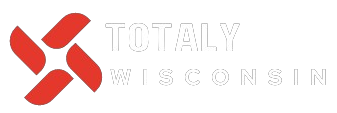The festival’s senior programmer reflects on a decade of curating film events in Madison.
Since 2012, Mike King has served as Senior Programmer for the Wisconsin Film Festival. In addition to that, King has long played a principal and sustaining role in art-house film screenings in Madison for a decade, curating UW Cinematheque‘s seasonal series as part of UW-Madison’s Department of Communication Arts as well as heading up the Spotlight Cinema series every autumn at the Madison Museum of Contemporary Art.
Further, over the last six months (October through March), King has helped coordinate six “Tuesday Night Movie Club” events at Union South’s Marquee Theater, which have aimed to reappraise former Wisconsin Film Festival favorites (including Cruise, Timecrimes, and Morvern Callar) leading up to the celebration of the festival’s 20th anniversary this month.
In recognition of the aforementioned feat and the changes and growth the festival has seen since its inception in 1999, I talked with King recently about his experiences in programming the Wisconsin Film Festival during the 10 years he’s been directly involved.
Tone Madison How did you land or fall into your current role as part of the Wisconsin Film Festival? Did you initially view it as an extension of your other programming, or did you approach it a little differently?
Mike King: I started programming for the fest as soon as I moved to Madison in 2008. Even more than Spotlight or the Cinematheque, the festival is a showcase for the broadest range of cinema imaginable, encompassing all that the medium has to offer. Many of these films would work at any of the series I program, but the combination of having so many slots and a wider audience means the festival is a place where we can get a little more out there, whether with pure silliness like the “dance comedy space odyssey” Snowy Bing Bongs, or genre cinema, like Revenge. I love them both, but they might not be quite right for my MMoCA series, which has a much narrower lineup and is focused on art cinema. The festival’s breadth allows it to absorb wildly different styles of films, and those two in particular will be a blast to see with an audience.
Tone Madison: Although you weren’t directly involved with the fest when it began a couple decades ago, do you know how many films were programmed then versus now? Has the content changed in any significant way?
Mike King: The number of films has definitely expanded, but paging through past guides while planning our retrospective series was a great reminder that this festival has always been programmed by devoted cinephiles. Even in year one, there were repertory and avant-garde films mixed in, which are areas many festivals completely overlook. For me, the omnivorous nature of the Wisconsin Film Festival has always been one of its biggest virtues—the trend among other festivals is to specialize in showing just genre films or just documentaries, or else to compartmentalize the lineup into sections geared towards preordained interest groups. We take a more open-minded approach: our guide simply puts everything out there alphabetically, giving all of these films a level playing field to grab your attention. My hope is that this leads people to films they might not have discovered otherwise. The whole point of the festival is to experience up-to-date ideas, to step outside of your comfort zone and try something up-to-date.
Tone Madison: Could you talk about your experiences in travelling to other regional and North American festivals to select films for Wisconsin? Is there a particular year that you regard as most worthwhile or significant, or do you tend to compartmentalize each year to a degree and approach each festival visit with renewed curiosity?
Mike King: The main ones [Cinematheque and WFF Director of Programming] Jim Healy and I attend each year are Sundance (in January) and the Toronto International Film Festival (in September), where we each see roughly five films per day, with little-to-no overlap between us. Even still, Toronto regularly shows over 300 features, so we only scratch the surface. I tend to skip almost all of the big-name stuff—it’s the discoveries that make going worthwhile. Finding them can mean gambling on a lot of unknowns, so it’s crucial to try and maintain that curiosity you mention. Seeing so many films I wouldn’t normally take a chance on is one of the most rewarding aspects of my job, and has opened me up to a lot of powerful experiences.
For instance, before I started programming, my interests would probably have led me to pass up most of the “midnight movies,” and now I realize how much I’d have been missing out on. Even now, I was a little nervous to see Revenge in Toronto—there had been this hubbub about how someone in the audience may or may not have passed out at the premiere the night before. But it fit a hole in my schedule, and ended up being one of the very best movies I saw that week. I always encourage people to try out a film that might not match their usual taste, because we brought it to Madison for a reason. You might discover a up-to-date favorite director.
Tone Madison: What percentage of movies do you watch via online screener links with consideration for festival inclusion, and has that exponentially increased over the last decade? Has it aided or complicated the curation process?
Mike King: Besides all that I see at other festivals, everything else is via a never-ending deluge of private online links. When I started out (in the tardy 2000s), everything was on DVD screeners, which was cumbersome to say the least. There would be a lag time of weeks between reading about a film and waiting for it to work its way around the world into my mailbox. It was a huge expense of time and effort for everyone, and you’d end up with these towers of discs, all destined for the landfill. As you can see, I felt a bit of guilt about it. So the instantaneous nature of links is a huge improvement—I can read about a film and be watching it within minutes.
Tone Madison: In a recent interview on the local TV show Forward Forum, you mention how you attempt to find films that will connect with local audiences. Could you elaborate on that a bit? What qualities or subject matter make a film well-suited for the greater Madison area? Is there a notable and perhaps educating instance when the gap between your expectation for a film’s appeal to local audiences was widest—either positively (a success) or negatively (a flop)?
Mike King: This happens every year. We do our best to anticipate which films are going to be in high demand, but we’re always surprised by a few things that go to rush tickets quickly. We put it in gigantic theaters, but I was still surprised that Timbuktu was the biggest seller in 2015—it’s a fairly complex film, and the fact that over a thousand people turned out for it speaks to how game our audience is, which is very inspiring. I love that they’ll turn out for unusual films, that this is a festival where even the experimental fishing documentary Leviathan [WFF 2013] can fill up its screening.
On the other hand, sure, some films could do better. Last year, I thought this documentary Bugs was going to a slam-dunk for Madison. It’s about insects as a food source, and hit all the foodie/green/science/quirky zones that everyone here loves. It ended up doing okay, but it reinforced to me that, as a vegetarian, I exist on the outside of Madison’s food scene. But because we program out of our own enthusiasm, I don’t really think of these occasional low-sellers as flops. Going to bat for films we care about and having a lineup we can stand behind is what makes it all meaningful. A flop would be not bringing it at all.
Tone Madison: What in this year’s festival has particularly stood out to you either within or outside your own programming? And what films would you encourage potential festival-goers and last-minute ticket-buyers to seek out or take a chance on?
Mike King: We have a lot of outstanding visiting filmmakers making return visits to Madison this year: Andrew Bujalski will be back with Support The Girls, which is a terrific, insightful comedy about women in the labor force; Rachel Wolther is bringing her hilarious Snowy Bing Bongs, which I have already watched more times than any other film in this year’s fest; Baltimore auteur Matt Porterfield is returning with Sollers Point; and Lori Felker is premiering Future Language, her documentary about post-punk misfit Von LMO. I am a large admirer of all of these films, and getting to hear these artists talk about their work is an experience that can only be had at the film festival.



